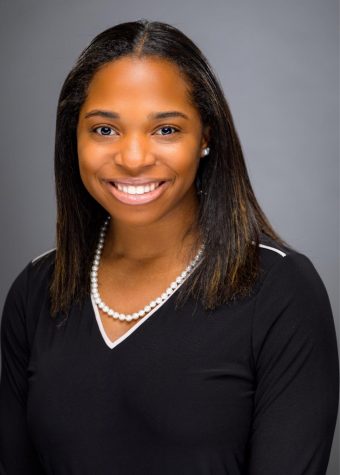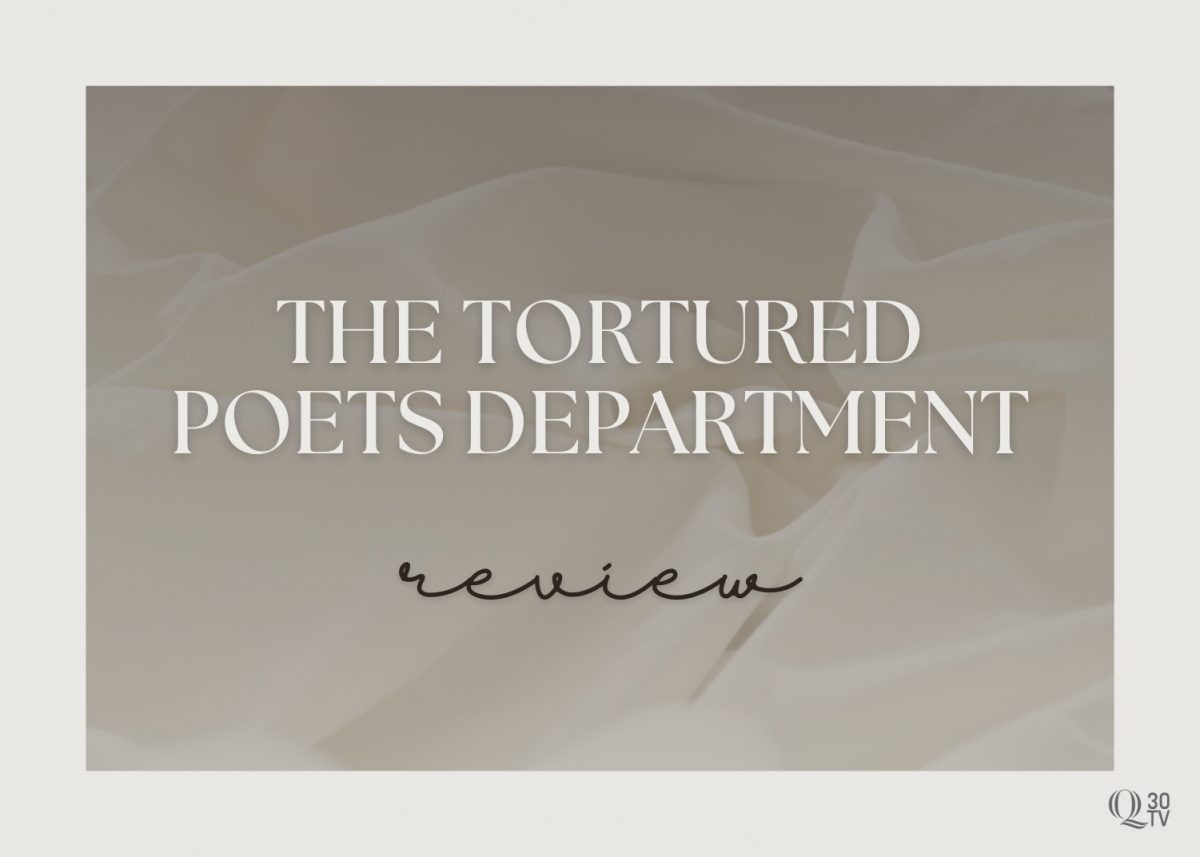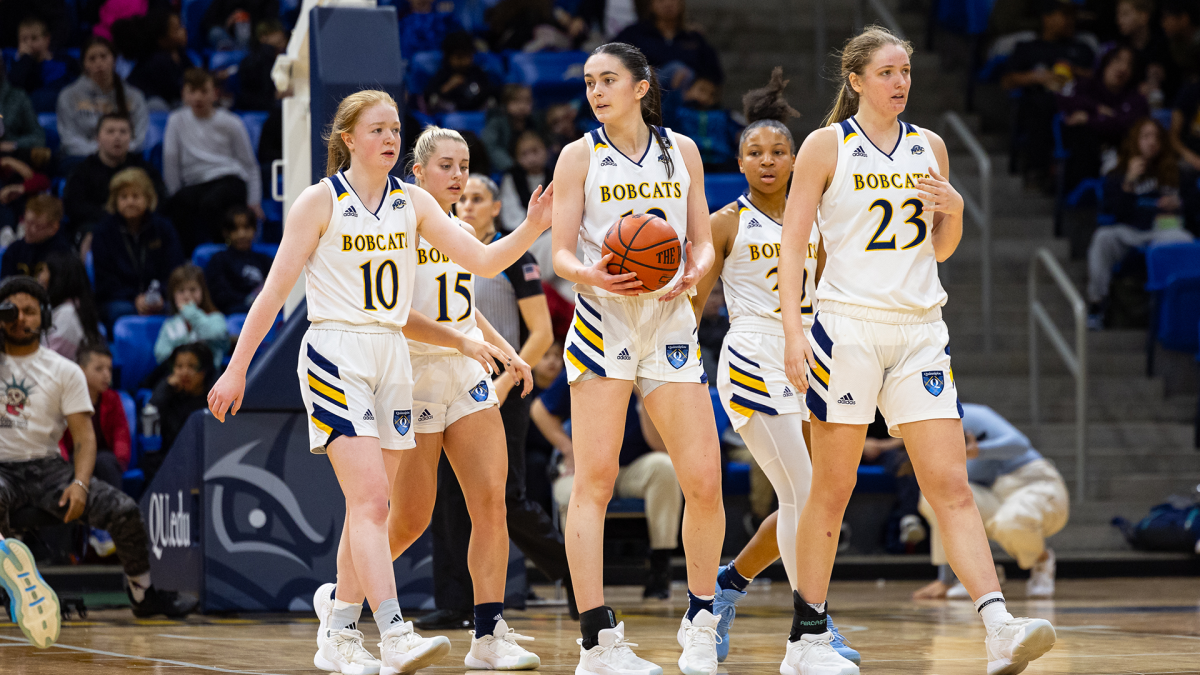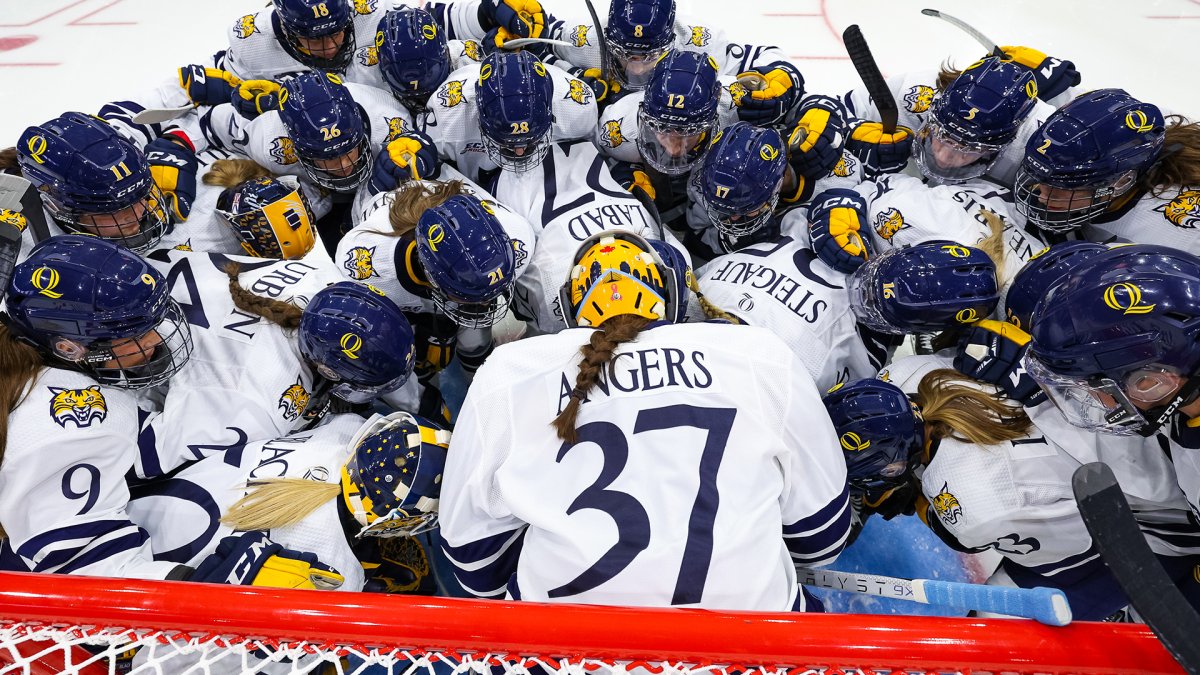Quinnipiac professors double as Albert Schweitzer fellows
August 18, 2019
The Albert Schweitzer Institute is an organization that helps coordinate U.S. and international programs that put a large emphasis on education, ethics and volunteering. And this year, many professors at Quinnipiac are involved with the Albert Schweitzer Institute.
The Albert Schweitzer Fellowship was founded in 2017 to help support the mission of the late Albert Schweitzer. Schweitzer was known for his musical and theological legacies. He also contributed to peace by helping those in underserved populations in Africa.
The five 2019-2020 fellows are Ewa Callahan, associate professor of interactive media and design, Amber Kelly, assistant professor of social work, Alexander Laskin, professor of strategic communication, Renée Tursi, associate professor of English, and Tray Van Oss, a clinical professor of occupational therapy.
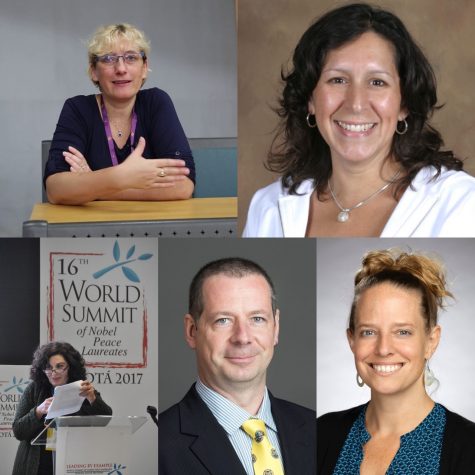
Bottom: Amber Kelly (right), Alexander Laskin (center), Renée Tursi (right)
Each recipient will receive $5,000 for their projects during the 2019-2020 school year, and students are encouraged to assist them.
One of the recipients, Amber Kelly, is working on trauma-informed mindfulness-based training with prison populations.
“I knew that I wanted to do this project, but I wasn’t sure how I was going to support it,” Kelly said. “I was also excited to have the opportunity to work with a group of other people, working on projects they were passionate about.”
Kelly’s project focuses on helping incarcerated men and women, especially those who have dealt with trauma and violence. In addition to going into the prisons, she will be hosting dinners in the community as well.
She will be doing her work at the Cheshire Correctional Institution, and York Correctional Institution in Niantic, Connecticut. Students can start applying to be apart of the project and will have the opportunity to go into the correctional institutions as well.
Renée Tursi will be working on a project called, “Marilynne Robinson’s Riddles of Existence.”
“The process of applying for the Albert Schweitzer Institute Fellowship was meaningful, since I am strongly committed to the institute’s mission and feel it is one of the university’s most important resources,” Tursi said. “Also, as I always remind students, every written undertaking is an opportunity for self-reflection and development of our ideas. One never ‘graduates’ into a writer who can fast-track those steps. So, even for a seasoned faculty member, writing well is always about slow revision, revision, revision.”
Tursi describes her project as “a shared approach between Robinson, a contemporary American essayist and Pulitzer Prize-winning novelist, and Albert Schweitzer, the early 20th-century physician and humanitarian who won the Nobel Peace Prize. Specifically, each of them has explored three different realms – science, philosophy, and religion – with great authority and impact.”
She hopes that her project will spark more conversation around campus about the Schweitzer Institute and show the Quinnipiac community what impact these two individuals had on the people around them so that others can learn from them as well.
Alexander Laskin will be working on a research project evaluating the use of nuclear weapons in an actual war.
“I want to see if people are ready to use nuclear weapons in an actual war, even understanding that there will be no winners after this,” Laskin said. “I want to know if people are willing to end the world over whatever disagreements they may have. I want to see what reasons can be more important than the survival of the planet.”
“It is a research project so its goal is to learn and understand the issue,” Laskin said. He hopes that his project can show how important life itself is and how things like war, religion and political views do not triumph over “the value of life.”
Most of the projects the recipients a doing are working on are hands-on and involve the university community.
Tracy Van Oss’ project focuses on the Interprofessional Experiential Learning Academy: Poverty.
“I wanted to create something meaningful that is flexible for students to participate with choices to select how much and what type of opportunities to engage with the QU and local community,” Van Oss said.
Students will have the chance to go to various shelters in the greater New Haven area, travel to the United Nations in New York and be a part of the many different events that the Albert Schweitzer Institute (ASI) puts on throughout the year. At the end of this, the students will then share their findings with the ASI.
While most of the projects will be done locally, one will be done abroad. Ewa Callahan will be traveling to India early next year to shoot a documentary about a social activist, Chaya Kakade. While she won’t be bringing students along with her, she hopes they will join her when she gets back with the post-production of the film.
Currently, this is the “preparatory phase” for Callahan, as she still has a lot more to do before she goes to India.
“We currently are working on gathering support of it,” Callahan said. “This January Sujata Gadkar – Wilkox and I met with Chaya Kakade, and her community and conducted initial interviews, and location shoots in Latur and Mumbai. Now, we are working on transcribing it, so we can put together a teaser to apply for external grants. The footage gathered in India during this trip was done with amateur equipment for information purposes, to be able to envision the professional film ideas.”
Callahan hopes this documentary showcases more about the grassroots activism in India and the social change we here at Quinnipiac can make.
All of the fellows have one thing in common with their projects, which is getting the community involved. The Quinnipiac community is encouraged to look out for events on campus and emails regarding them to stay up to date with the work that the fellows are doing.



